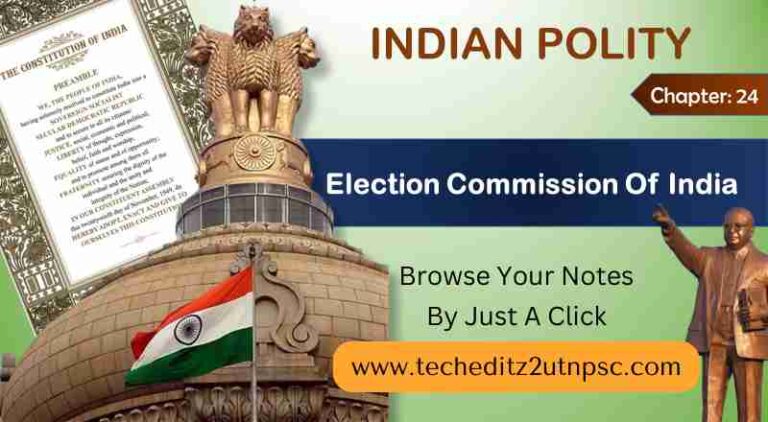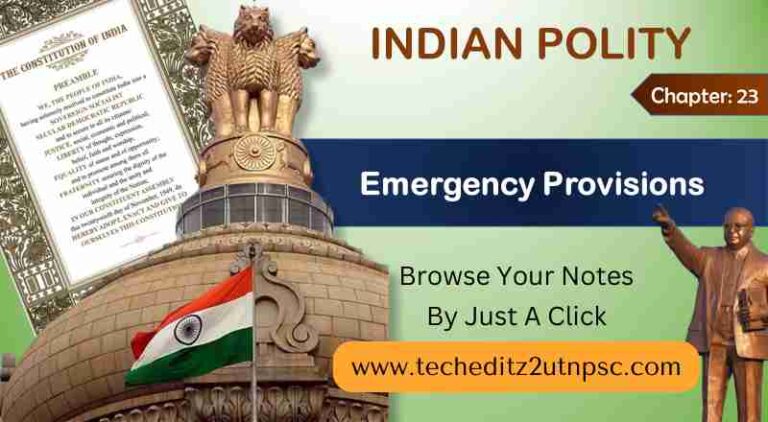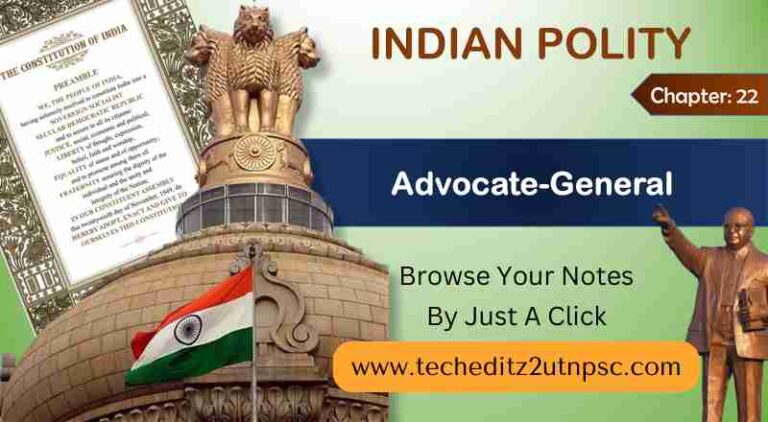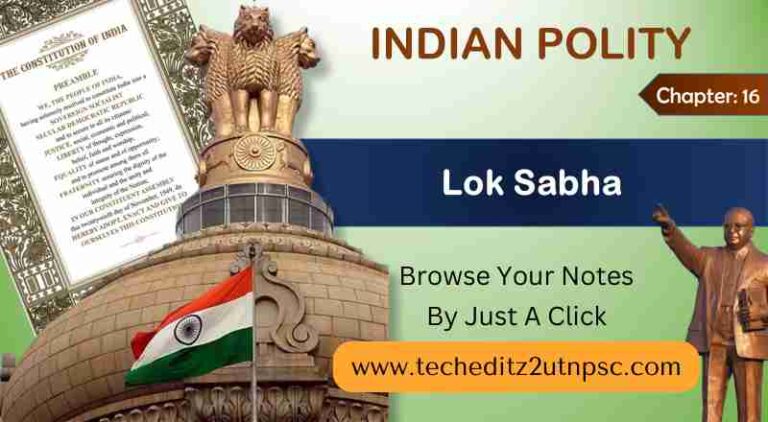support@techeditz2utnpsc.com | 8300-921-521
Union Public Service Commission

Indian Polity Chapter 25: Union Public Service Commission Union Public Service Commission: (Upsc) Article 315: There shall be a Public Service commission for the Union and Public service Commission for each state. UPSC is a Constitutional body. The UPSC conduct…








